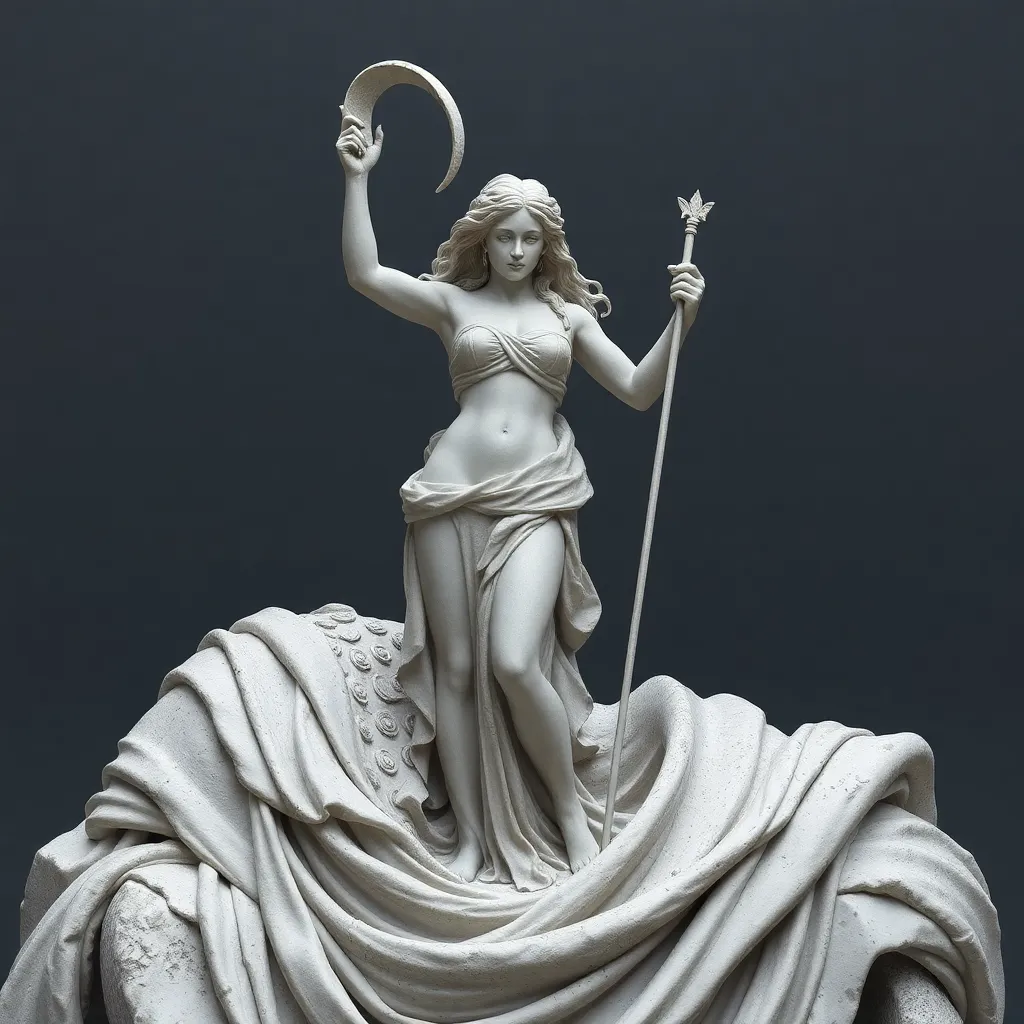The Role of Demeter in Greek Myths: A Focus on Her Relationships
I. Introduction
Demeter, one of the most revered deities in Greek mythology, holds a significant place as the goddess of agriculture, fertility, and the harvest. Her narratives are woven into the fabric of ancient Greek culture, reflecting the importance of the agricultural cycle and the nurturing aspects of life. This article explores the relationships that shape Demeter’s character, revealing how these connections construct her identity and influence her interactions with gods and mortals alike.
II. Demeter: The Goddess of Agriculture and Fertility
Demeter, often depicted with sheaves of wheat and a cornucopia, embodies the bounty of the earth and the sustenance it provides. As the goddess of agriculture, she governs the fertility of the soil and the growth of crops, underscoring her vital role in ancient Greek society, where agriculture was the backbone of life.
The symbolism of Demeter extends beyond mere sustenance; she represents the nurturing aspect of nature, the cycles of life and death, and the profound connection between mother and child. Her attributes include:
- Motherhood
- Fertility
- Seasonal change
- Harvest
III. The Mother-Daughter Bond: Demeter and Persephone
The most poignant and well-known relationship in Demeter’s mythology is with her daughter, Persephone. The story of Persephone’s abduction by Hades is central to understanding Demeter’s character and the themes of loss and reunion. According to myth, Hades, the god of the Underworld, fell in love with Persephone and took her to his realm, which plunged Demeter into profound grief.
Demeter’s sorrow had tangible effects on the world; she withdrew her gifts from the earth, causing plants to wither and crops to fail, leading to a barren landscape. This narrative illustrates the direct connection between her emotional state and the fertility of the earth, highlighting the deep bond between mother and daughter.
The significance of their relationship is also tied to the seasonal cycles. Persephone’s descent into the Underworld corresponds with winter, while her return brings spring and renewal. This cyclical nature of life and death emphasizes the themes of regeneration and transformation inherent in Demeter’s mythology.
IV. Demeter and Zeus: The Complex Relationship
Demeter’s relationship with Zeus, the king of the gods, is complex and multifaceted. As siblings, they share a bond that is both familial and functional within the divine hierarchy. Their union resulted in the birth of Persephone, further intertwining their fates.
The nature of their relationship can be interpreted as one of love, conflict, and resolution. Zeus, while powerful, often represents the patriarchal order of the gods, and Demeter’s relationship with him highlights the challenges faced by female deities in a male-dominated pantheon. Their dynamics reflect the balance of power among the Olympians and the implications of parental relationships in mythology.
V. Demeter’s Relationship with Other Gods and Goddesses
Demeter’s interactions with other deities also shed light on her character and the broader mythology. Her relationship with Hades is particularly significant, as it directly impacts her daughter, Persephone. Hades’ abduction of Persephone leads to a strained relationship between him and Demeter, marked by her fierce protectiveness and grief.
Demeter plays a crucial role in the Eleusinian Mysteries, ancient rites that honored her and Persephone. These rituals celebrated the cycle of life and death, showcasing her importance among other gods and goddesses. Furthermore, her relationship with Hera, the queen of the gods, adds another layer to her character, illustrating the dynamics of friendship, rivalry, and support among the Olympian deities.
VI. Human Relationships: Demeter’s Influence on Mortals
Demeter’s impact extends beyond the divine realm into the lives of mortals. Numerous myths depict her as a nurturing figure, aiding humans in times of need. One famous story involves her interaction with the mortal woman, Triptolemus, whom she entrusted with the knowledge of agriculture, enabling him to teach others the art of farming.
Her relationships with mortals also influence agricultural practices and the development of festivals in her honor, such as the Thesmophoria, a festival celebrating fertility and the harvest. These events highlight her role as a life-giver and sustainer, emphasizing her nurturing qualities.
Demeter’s essence as a nurturing figure resonates deeply within human lives, symbolizing the connection between the divine and the agricultural, and underscoring the importance of motherhood in various cultures.
VII. Demeter’s Legacy: Cultural Impact and Modern Interpretations
Demeter’s relationships and their narratives have left a lasting impression on literature and art throughout history. From classical writings to Renaissance art, her figure has been a source of inspiration, often representing themes of fertility, loss, and the resilience of motherhood.
In contemporary culture, Demeter appears in various forms, such as in literature, films, and artwork. She is often portrayed as a symbol of maternal strength and the deep emotional connections between mothers and their children. Her myths continue to resonate today, providing insights into the complexities of love, loss, and renewal.
The ongoing relevance of her stories invites discussions on the themes of motherhood, the cycles of life, and the relationship between human beings and nature, reinforcing her lasting significance in both ancient and modern contexts.
VIII. Conclusion
Demeter’s relationships, particularly with Persephone and other deities, illustrate her multifaceted character and the profound themes embedded within her myths. Her journey through grief, love, and resilience offers valuable lessons on the nature of relationships and the cycles of life.
As we reflect on Demeter’s legacy, it is clear that her stories continue to resonate with audiences, reminding us of the enduring power of love and the inevitable experiences of loss and renewal that shape our lives.




